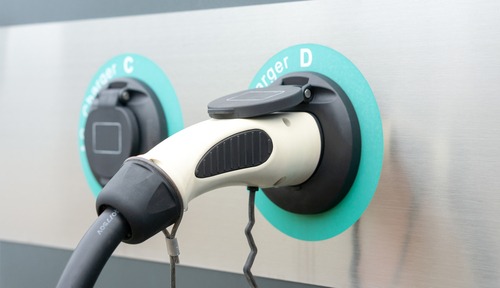
The U.S. Department of Energy (DOE) awarded $199 million to fund 25 projects aimed at putting cleaner cars and trucks on the roads and improving the nation’s electric vehicle (EV) charging infrastructure.
The awards are through the DOE’s SuperTruck initiative, which launched in 2009 to improve heavy-duty truck freight efficiency. These awards are part of the third iteration of it, which is expanded to improve medium- and heavy-duty truck efficiencies and reduce emissions of freight transportation.
“As America’s solutions department, DOE is working with manufacturers and industry partners to reimagine vehicle transportation across the country to achieve our climate goals—from lowering carbon emissions to increasing efficiency and affordability,” DOE Secretary Jennifer Granholm said. “This investment and the innovations that come from it will help shape our clean energy future and strengthen domestic manufacturing that support good-paying careers for hardworking Americans.”
SuperTruck 3, as it is called, will fund five heavy vehicles manufacturers with a combined $127 million to pioneer electrified medium- and heavy-duty trucks and freight system concepts to achieve higher efficiency and zero emissions.
Funding was awarded to:
- PACCAR Inc. in Bellevue, Wash. ($32,971,041) to develop eighteen Class-8 battery electric and fuel cell vehicles with advanced batteries and a megawatt charging station will also be developed and demonstrated;
- Volvo Group North America in Greensboro, NC ($18,070,333) to develop a 400-mile-range Class-8 battery electric tractor-trailer with advanced aerodynamics, electric braking, EV optimized tires, automation, and route planning. A megawatt charging station will be developed and demonstrated;
- Daimler Trucks North America in Portland, Ore. ($25,791,669) to develop and demonstrate two 2 Class-8 fuel cell trucks with 600-mile range, 25,000-hour durability, equivalent payload capacity, and range to diesel;
- Ford Motor Company in Dearborn, Mich. ($24,952,314) to develop and demonstrate five hydrogen fuel cell electric Class-6 Super Duty trucks targeting cost, payload, towing, and refueling times that are equivalent to conventional gasoline trucks; and
- General Motors in Pontiac, Mich. ($26,061,726) to develop and demonstrate four hydrogen fuel cell and four battery electric Class 4-6 trucks. The project will also focus on development of clean hydrogen via electrolysis and clean power for fast charging.
“Any comprehensive effort to tackle the climate crisis must include strategies to reduce pollution from the transportation sector,” U.S. Rep. Earl Blumenauer (D-OR) said. “Daimler Trucks North America in Portland has made amazing contributions to the development of medium- and heavy-duty truck electrification technology to move us closer to that goal.”
Transportation emits approximately 29 percent of carbon emissions, more than any other sector of the U.S. economy. These awards align with DOE’s commitment to reaching President Joe Biden’s goals of having zero-emission vehicles make up half of all vehicles sold in America by 2030 and achieving net zero emissions economy-wide by 2050.
“If we are serious about combating climate change, keeping good-paying jobs here at home, and boosting the American supply chain, we need strong federal policies and strategic investments in electric vehicles and charging infrastructure,” U.S. Rep. Debbie Dingell (D-MI) said.
Also, through its Low Greenhouse Gas Funding Opportunity, the DOE will invest $71 million in 20 research, development, and demonstration projects to reduce emissions for on- and off-road vehicles and accelerating the expansion of EV infrastructure and charging. These awards are going to organizations within industry, academia, and non-profits including Clean Cities Coalitions.